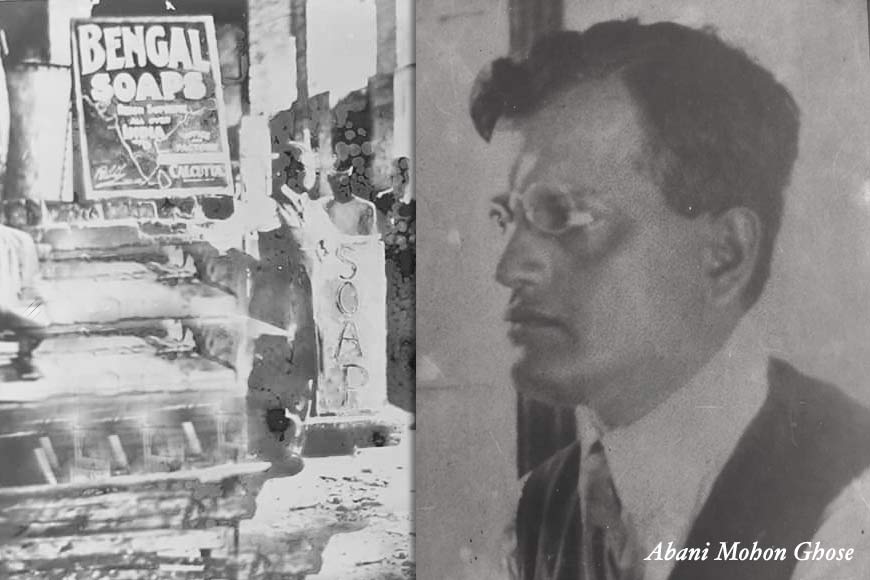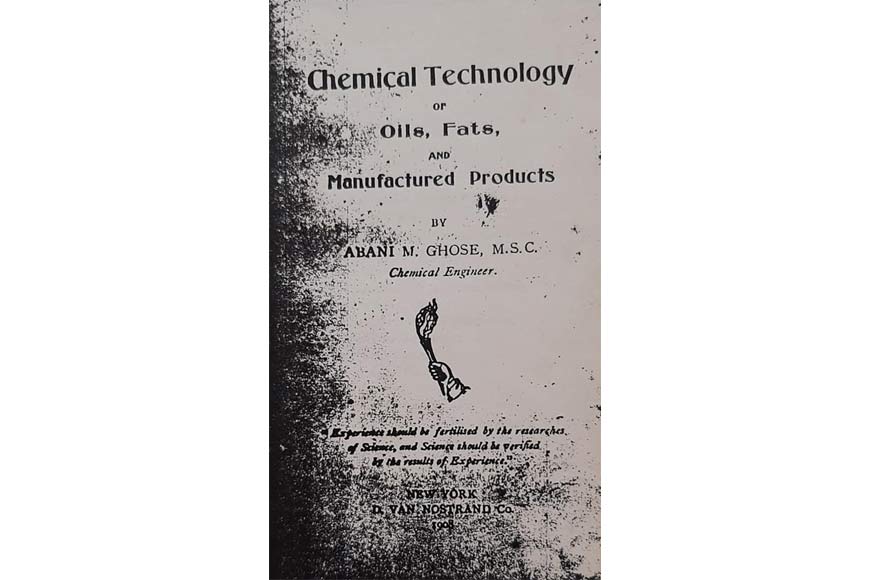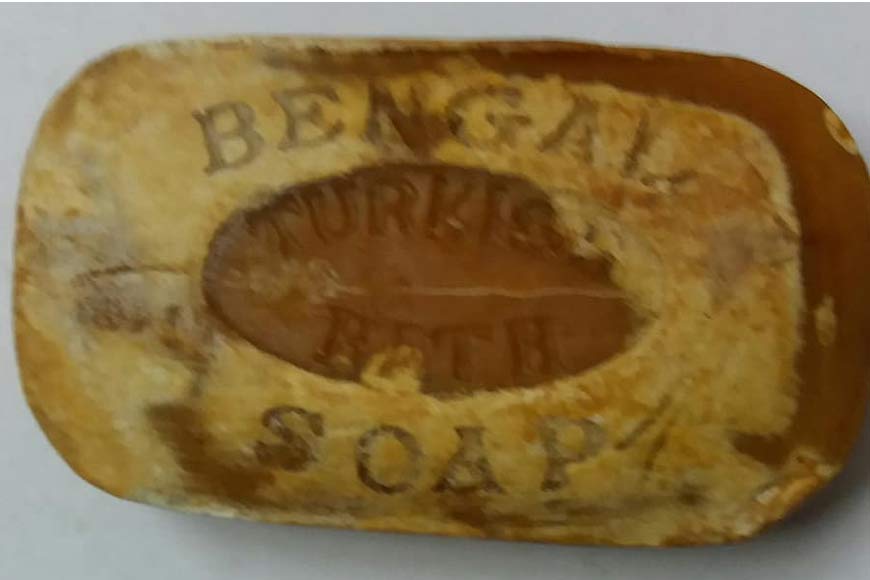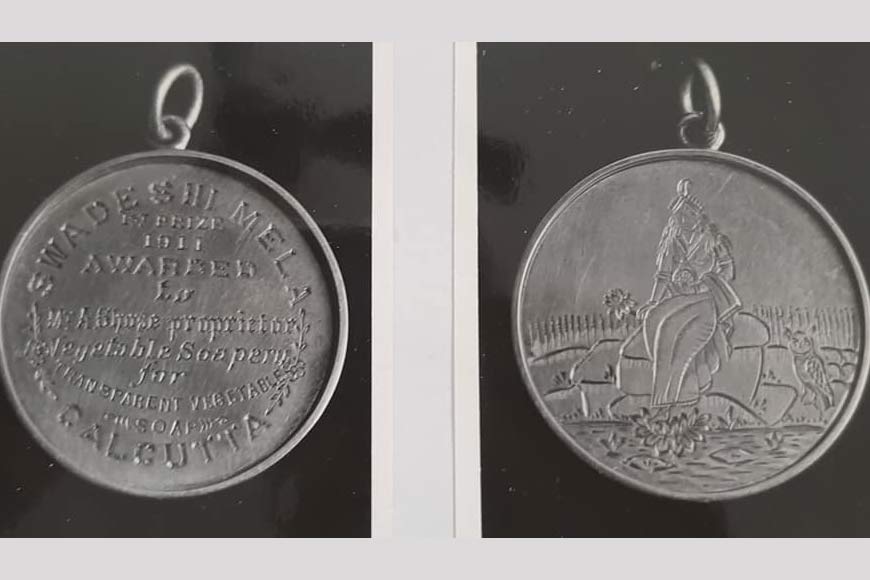Bengal Soap Factory— Pioneering entrepreneurship in Bengal in early 1900s

Who says Bengalis do not understand entrepreneurship? Or are not good in business ventures? The entrepreneurship zeal of Bengalis were supreme in pre-independent India for sure and one such example is the Bengal Soap Factory, an indigenous entrepreneurship effort and a Swadeshi venture from undivided Bengal, in early 1900s that paved the path forward for Bengal’s entrepreneurs. It contributed to the swadeshi zeal of the Indians as well.
‘Bengal Soap’ which was a pioneer in its time. Founded in 1902-03 by late Abani Mohon Ghose at 4 Raj Kumar Chatterjee Street on Tala Park Avenue in North Kolkata, Ghose’s family was closely associated with the Swadeshi movement.

Though the oldest recorded evidence of production of soap like substance dates back to 2800 BC in ancient Babylon, but in Bengal, it is presumably ‘Bengal Soap’ which was a pioneer in its time. Founded in 1902-03 by late Abani Mohon Ghose at 4 Raj Kumar Chatterjee Street on Tala Park Avenue in North Kolkata, Ghose’s family was closely associated with the Swadeshi movement. Abani Mohon Ghose started business and then received grants from some Swadeshi businessmen in Bengal for training in New York’s Pratt Institute of Technology.
“My late grandfather Abani Mohon Ghose went to New York, braving Kalapani, a big qualm in those days, and acquired the expertise and art of soap making from Pratt Institute of Technology in New York. Inculcated with Swadeshi spirit, his trip to New York for learning the technicalities of soap making was in all probability made possible through a grant provided by a Swadeshi Businessman in Bengal,” Ambar Ghose told Get Bengal.
Abani Mohon Ghose wrote a book, Chemical Technology of Oil, Fats and Manufactured Products, which was published by D. Van Nostrand from New York.
“We grew up hearing about my grandfather’s stories from Hironmoyee Ghose, my grandmother. In those days, I have learnt that his soaps won numerous prizes and medals in various Swadeshi Melas in undivided Bengal. After my grandfather’s demise in the late 1930s before the Second World War, the Bengal Soap died an early death,’ Ambar Ghose recalled. Incidentally, Abani Mohon Ghose had already passed away and the factory was shut down, when Ambar Ghose was born. The range of soaps made by ‘Bengal Soap’ is not known to the family distinctly. The last surviving cake of the Turkish Bath Soap, however, is still preserved by the family.

Bengal Soap Factory was the first of its kind in the history of Bengal. Years later, another factory was set up in 1916. The Calcutta Chemical Company was established in Kolkata by K.C. Das, B.N. Maitra, and R.N. Sen. The spirit of Swadeshi movement was the foundation of this company as well. The company is best known for starting Margo soap and Neem Toothpaste and Lavender Dew Powder. The Calcutta Chemical Company still has its registered office in Kolkata and is mainly engaged in manufacturing of metals and chemicals.
Calcutta Chemicals also stood as a witness to India’s freedom struggle and as a symbol of India’s fight against British goods through the Swadeshi Movement. Khagendra Chandra Das (K C Das) was a man of integrity and he was the brain behind the phenomenal brand of ‘Margo’, a fruit of Swadeshi product.
Bengal Soap Factory was the first of its kind in the history of Bengal. Years later, another factory was set up in 1916. The Calcutta Chemical Company was established in Kolkata by K.C. Das, B.N. Maitra, and R.N. Sen. The spirit of Swadeshi movement was the foundation of this company as well. The company is best known for starting Margo soap and Neem Toothpaste and Lavender Dew Powder.
Coming back to Anandi Mohon’s family, the zeal for business and entrepreneurship runs in the Ghose family even today. After his father’s death, Anadi Mohan Ghose and his three brothers- Ananta Mohon, Satyabrata and Shantimoy Ghose and sister Chinmoyee Ghose started afresh, trying their hands on a new business. The youngest brother was studying at that time.
“During Second World War, they started making hand-made cardboard boxes which were supplied to an Ice-cream company. These card-board boxes were used for packaging ice-creams for soldiers. Thus, Bengal Box was born. From a simple beginning, they saved money and started printing business in 1941-42. They started business with a treadle machine and later upgraded to a premier off-set Printing machine,” Ambar Ghose elaborated.

Bengal Box was a successful business enterprise, which produced corrugated paper and board for tube light casing as well. However, the main business continued to remain Offset Printing. “We imported a machine from Japan. Bengal Box was the first company which supplied sleeves to Philips.
Bengal Box was a successful business enterprise, which produced corrugated paper and board for tube light casing as well. However, the main business continued to remain Offset Printing. “We imported a machine from Japan. Bengal Box was the first company which supplied sleeves to Philips. I had the opportunity to run the factory with my father and uncles in around 1972 for 3-4 years before I went abroad for higher studies,” Ambar Ghose said. The factory was closed in the early 1990s due to violent labour trouble and other problems.
With the closure of the Kolkata unit, business did not find its closure for Bengal Box. One of the sons of Abani Mohon Ghose, Shantimoy Ghose shifted base to Mumbai to open a second unit when labour trouble erupted in Bengal in the 1970s. Mulund Estate Industrial Estate near Thane became the new home for the factory, known as Rollspac. Diversifying the business, Ambar Ghose’s cousin Ashesh Ghose (Shantimoy’s son) is leading the way with his laminated packaging for pharmaceuticals and chemicals.
Another cousin, Arnab Basu, son of Chinmoyee Devi, a woman who ventured into family business with her brothers, set up a bakery in Kasba, which makes a wide range of cakes and savouries. The brand - Mio Amore, is a household name for every Bengali now.










